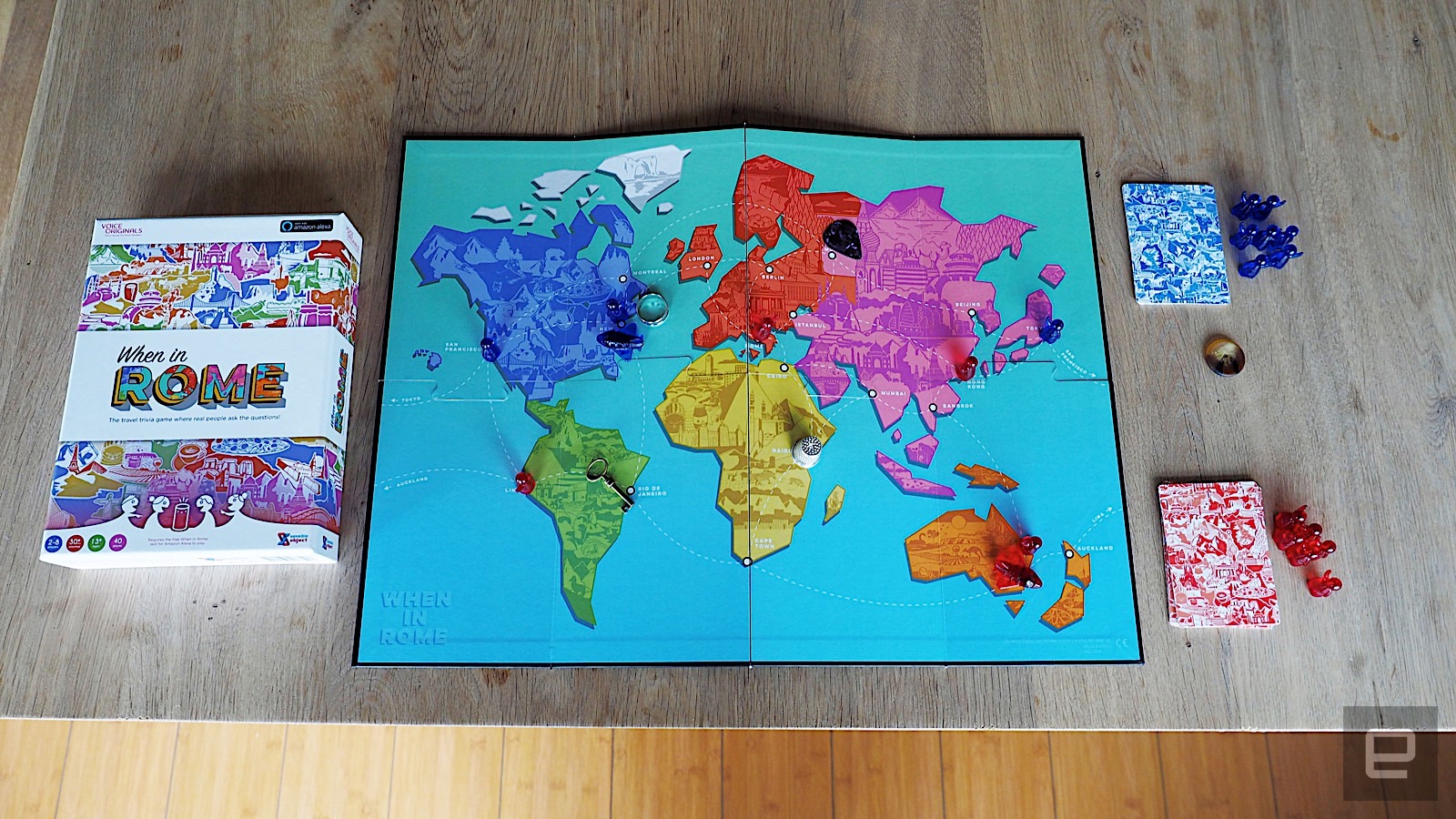 Board games aren't quite as sexy as their digital counterparts, but the hobby has nevertheless seen a resurgence in recent years. NPD Group reported that board game sales in the U.S. grew by 28 percent in 2016, cafes dedicated to the hobby are cropping up all over the country (and the world), and three out of the top ten most-funded projects on Kickstarter are tabletop games. Much of this can be attributed not just to the increased desire for real-life social interaction, but the rise of good-quality titles that are far superior to outdated classics like Monopoly and Candyland. But there is one problem with all of these new and exciting games: You need to learn how to play them. Unlike video games, which you can figure out by jumping into a tutorial and pressing a few buttons, tabletop versions often require you to read the instructions. For simple games, this isn't so bad, but for more advanced ones, it can be something of a chore. In fact, there's a whole cottage industry of YouTube videos that are dedicated to teaching people how to play board games. Sensible Object, a company based out of the UK, aims to change this with the help of a familiar friend: Alexa. It's creating a whole new line of board games called Voice Originals, which cast Amazon's virtual assistant as rules teacher, scorekeeper and just all-around game master. And, based on my experience, she does a remarkably good job in her newfound role. 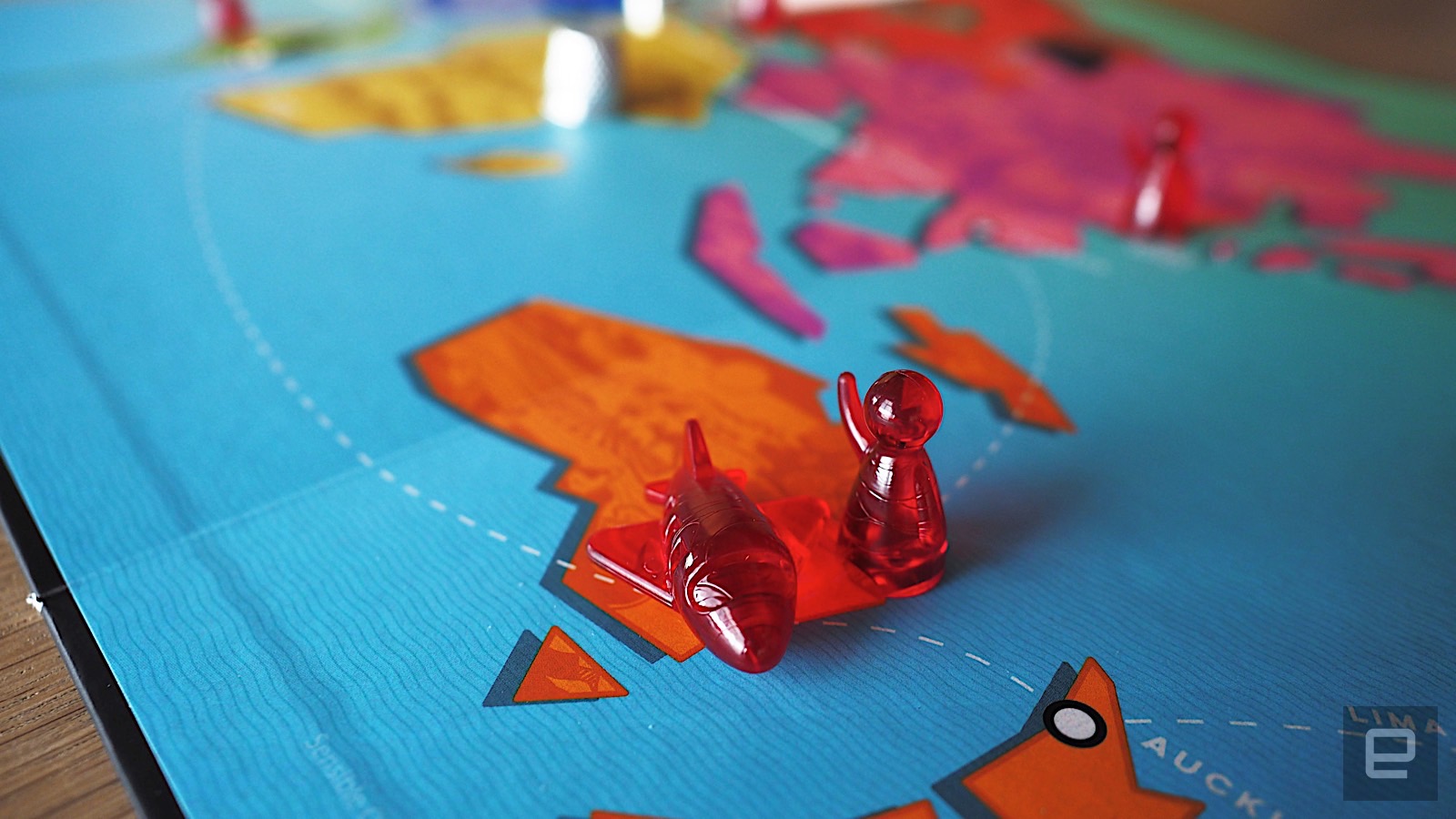
The first is titled When In Rome, a trivia game where you and up to seven of your friends divide up into two teams, travel around the world and answer questions about each locale in order to win points. At which point the scores are tallied up, and the team with the highest score wins. The game does come with a tiny little instruction booklet, but you really don't need it. All you need is an Alexa-powered device. Simply say, "Alexa, open 'When In Rome'" and the skill will automatically be added to your library of commands. It'll ask you if you want to play the game, and then it'll walk you through the instructions of how to set things up. Once you have the map laid out and the pieces divvied up between the two teams, you can prompt it to start. I played this game with an Amazon Echo Spot and a group of friends. Alexa's instructions were very clear and concise, and as an experienced board gamer, I really liked jumping straight into the game without having to read the rules first. I would love it if Alexa could explain the rules to every board game I had. 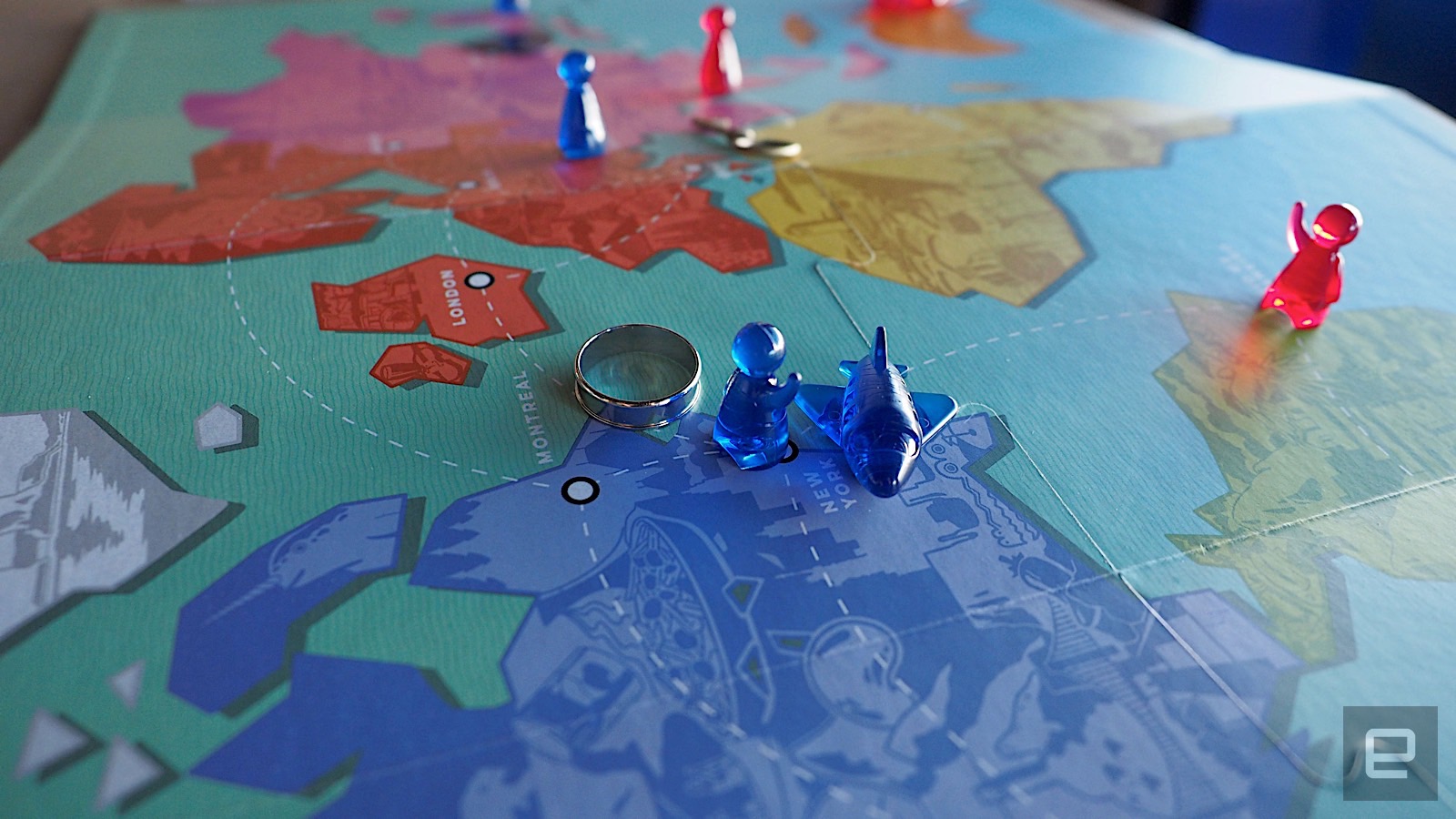
Gameplay is fairly simple. You'll say something like "Alexa, fly me to Mumbai" to get to a location, and Alexa will say OK, followed by the sound of a whooshing jet. Move your little plastic plane to the Mumbai spot on the map, and Alexa will then introduce you to a local character, complete with an accent and personality of his or her own. There are ways to upgrade your experience, too. In between each round, Alexa will ask a special trivia question. Get it right, and your team will have the choice of either two bonus points or picking a card from the deck to earn special powers. While I thought the game was fun overall, I did encounter a few hiccups. Some of the characters had pretty thick accents, making me wish I had some kind of text I could read instead. It was also hard to remember everything the character said, so we had to ask Alexa to repeat the question a couple of times. Alexa can be pretty slow and rambling at times too, which can be annoying when we wanted to hurry the game along. 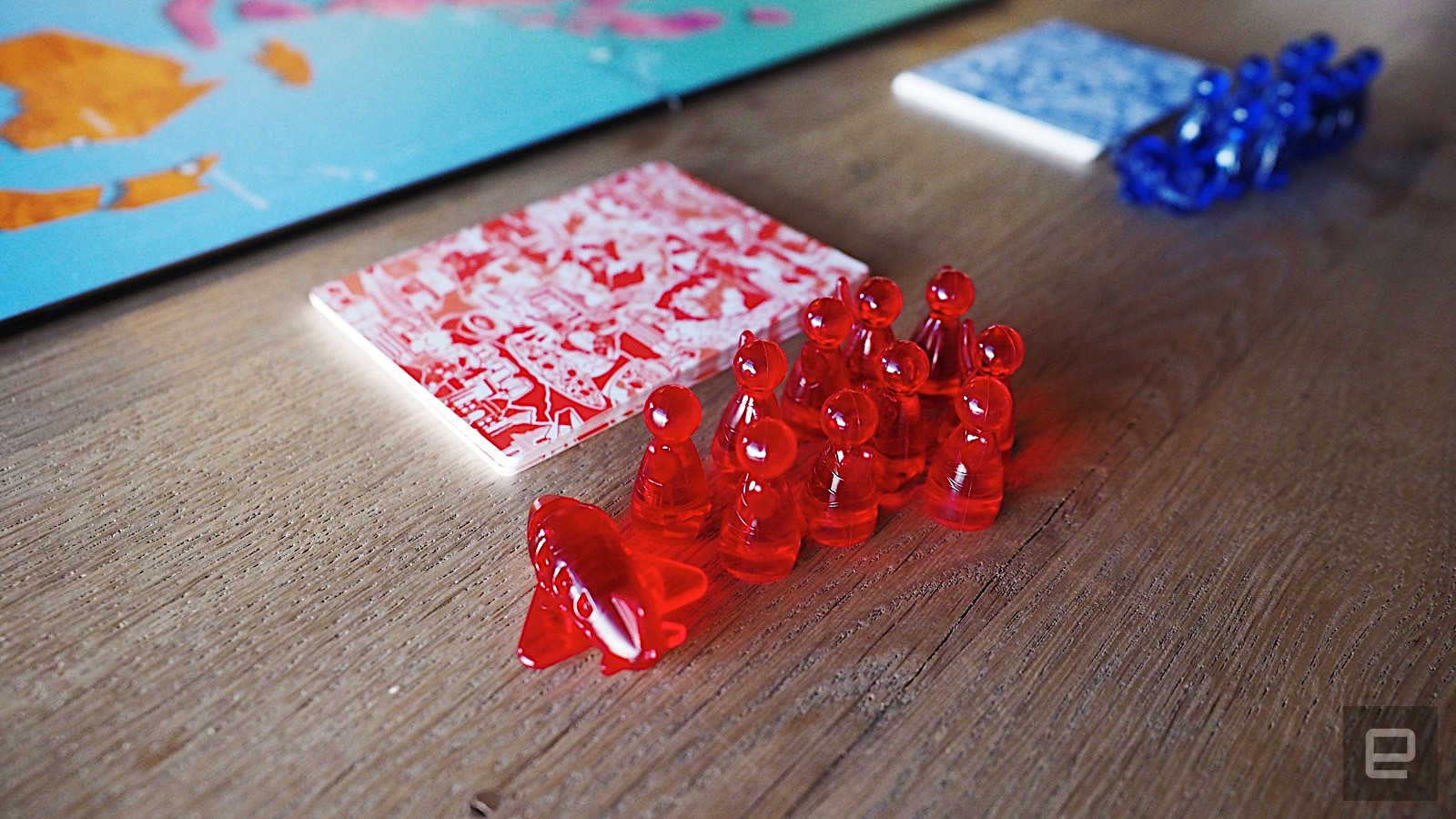
On the whole, I liked the game. The components are top-notch and I love the look and feel of those aforementioned souvenirs. I asked my friends what they thought of it, and everyone agreed that having Alexa walk them through the game was great. Having the character voices, music, stories and sound effects also really add to the experience of "traveling the world." If the company's name sounds familiar, that's because it's made one other game before. Two years ago, the company created Beasts of Burden, a Jenga-like game where piling polygons on top of each other would result in increasingly evolved animals in a companion iPad app. Its success with combining the digital world with physical objects was just one of the reasons Sensible Object was selected to participate in the Alexa Accelerator last year, an incubator program designed to help startups use Amazon's voice assistant. After three months in Seattle coming up with prototypes, the idea for Voice Originals, and subsequently When In Rome, was born. "Our mission is to build a play platform for the connected home," said Alex Fleetwood, Sensible Object's CEO and founder. "Our view point is that consumers and players are often offered this binary choice between either the tactile and social face-to-face fun of board games, or everything that's immersive and engaging about a digital play experience. So we thought, why not have both." 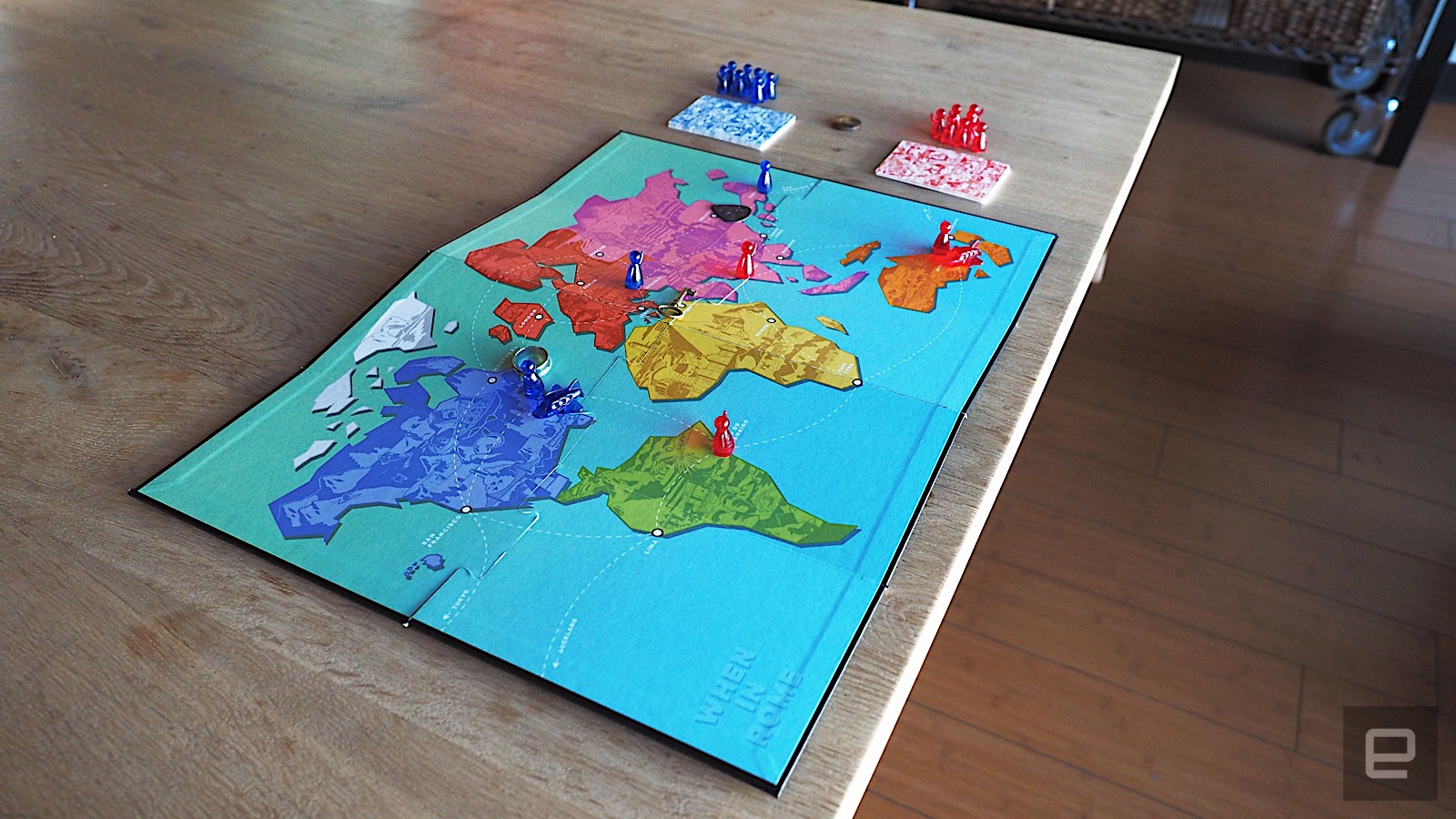
Of course, the combination of technology and boardgames isn't anything new. The World of Yo-Ho, for example, uses your smartphone as a sailing ship in a game of pirates, and there are plenty of tabletop titles like XCOM, Mansions of Madness Second Edition and Stop Thief! that require a companion app as an integral part of gameplay. There are also games like One Night Ultimate Werewolf, which lets you use the app as a moderator. But for Fleetwood, the integration of technology with board games isn't about making it seem cooler or flashier; it's about making it accessible to a wider audience. That's why he thinks using a voice assistant like Alexa is ideal. "Fundamentally, Alexa is a face-to-face technology," he said. "We don't have to pull out our phones, or get distracted by a screen. We can keep interacting and engaging with the people we live with and share space with, and there's this helpful communal interface available to support our needs." "When you look at the non-board games audience, they either play games they already know how to play -- which is why Monopoly is still so popular after all these years -- or they don't bother learning a new game," Fleetwood continued. "What percentage of the board game population is willing to struggle to play a game for three hours that completely sucks, so that the next time you play it, it'll be good? I know I am one of them, but not everyone is like that." 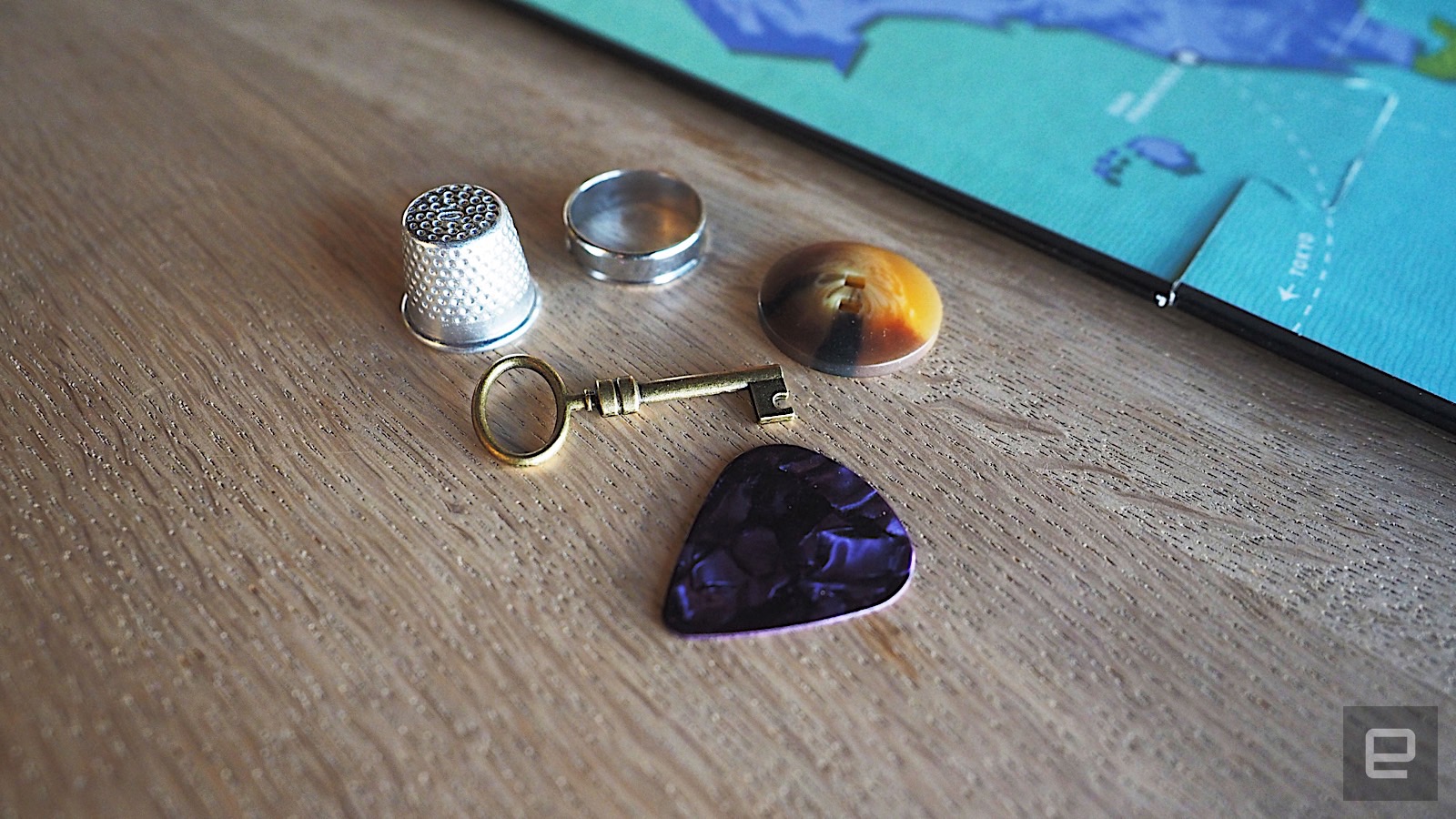
The potential for Alexa goes beyond just simple trivia games. Fleetwood imagines a future where Alexa could use its AI smarts to act as a Game Master for roleplaying adventures. "Imagine if it could hold all of the different characters in its memory, create the world, retain the trends of the story and make a great experience," he said. "It would be far easier than finding someone willing to read a 300-page rulebook." For now, Fleetwood's efforts are focused on fulfilling his vision of Alexa-based board games. His team is already hard at work on the second, third and fourth games in the Voice Originals series. They're also planning an adult-themed content pack for When In Rome that's focused on nightlife. Think of it as an expansion or a DLC, if you will. When In Rome goes on sale on Amazon starting July 2nd for $29.99 (though you can pre-order it now), and all the other Voice Originals will cost the same. Additional content packs will have a yet to be determined price. If you want to get a taste for When In Rome without buying the game, you can play around with the skill right now where it asks you a different trivia question every day, with a different local character every week. While the Voice Originals series is an Alexa-exclusive for now, the company does have plans to roll out a Google Assistant version in 2019. One key reason Fleetwood is so passionate about making board games more approachable is that as the hobby grows to include more people, he wants it to appeal to a wider demographic "The tabletop gaming space is moving from being a preserve of an older, white male audience to a much more diverse one," he said. "And we absolutely want to be at the forefront of that shift."
via Engadget RSS Feed https://ift.tt/2lGIMZJ |
Comments
Post a Comment